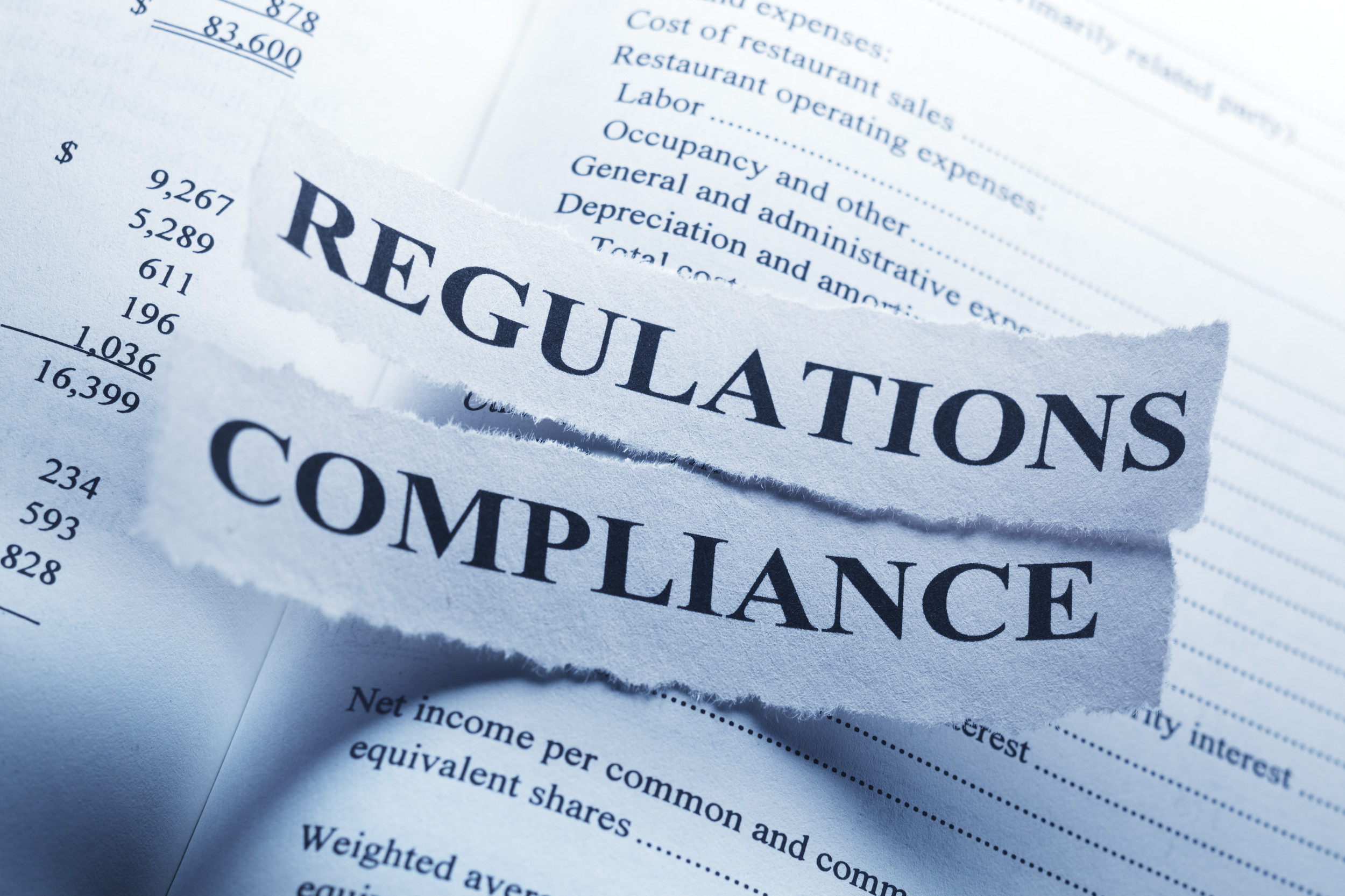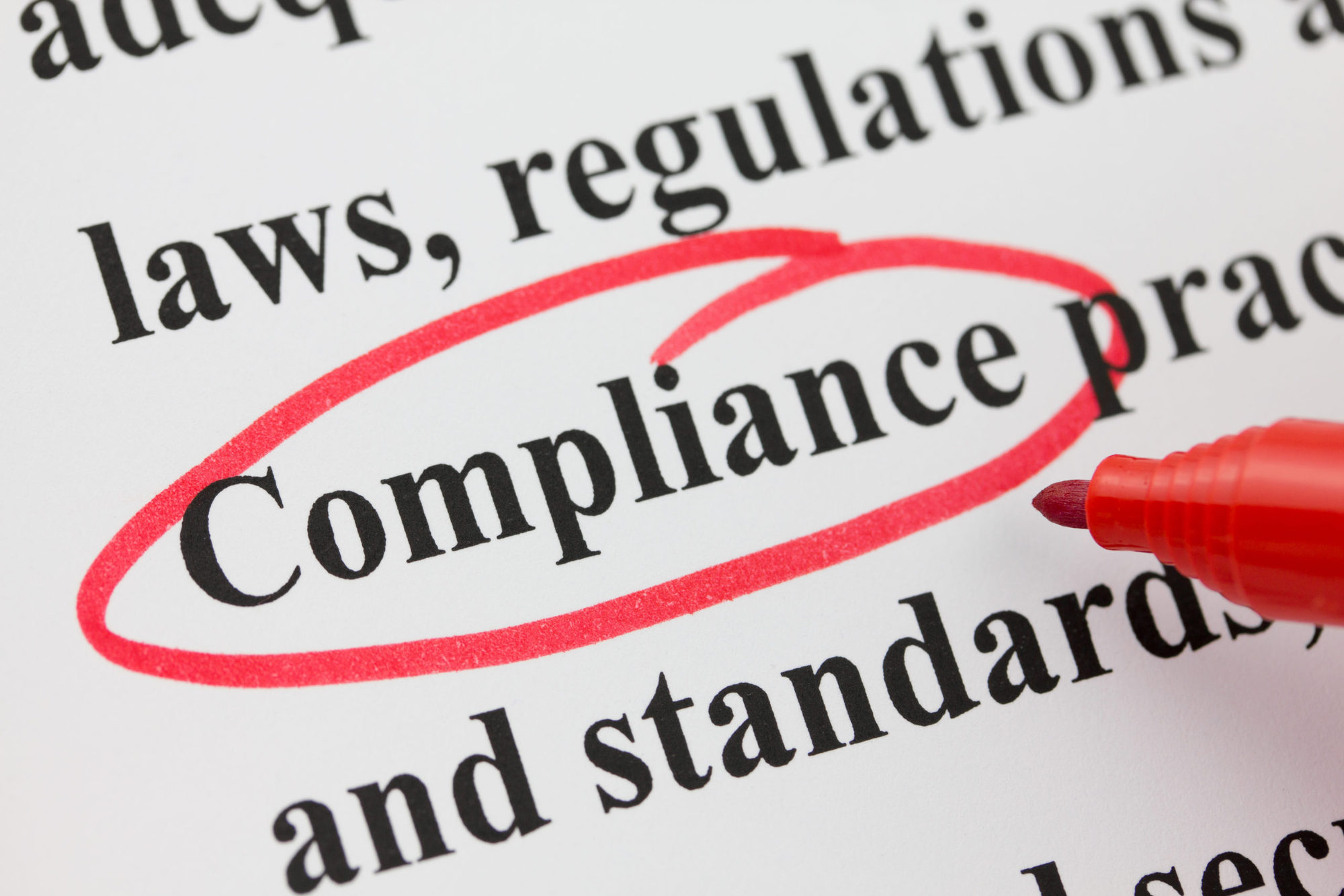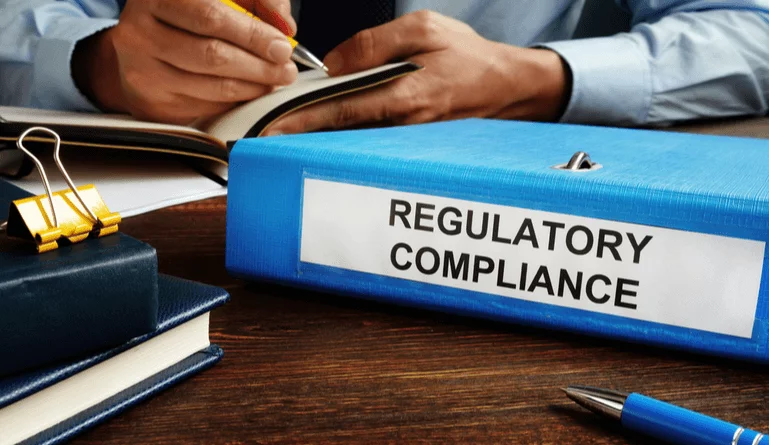What is a Compliance Report?
A Compliance Report is a document that details the adherence to laws and regulations in a particular organization or industry. It outlines the measures taken by an entity to ensure that it is in compliance with all applicable rules and regulations. It can include information on audits performed, corrective action taken when violations are found, and the overall effectiveness of an entity’s compliance program. The report can be used by internal stakeholders to assess the company’s level of compliance, as well as by external stakeholders to ensure that the company is meeting all requirements. In the entire compliance process, compliance Reports are essential for any business or industry seeking to protect itself from liability and ensure its operations are compliant with industry best practices.
Regulatory Compliance Reporting vs. Internal Compliance Reporting
Regulatory compliance reporting and internal compliance reporting are both important parts of a business’s operations. Regulatory compliance reporting is the process by which organizations report data to various government agencies and other third parties, while internal compliance reporting is used to track an organization’s own policies and procedures. Regulatory compliance reports are required for certain industries, such as banking, healthcare, and finance, and must adhere to certain government regulations. Internal compliance reports are used within an organization in order to track it’s own internal procedures and ensure that they are being followed.
Both types of reporting can help a business stay organized and on top of their compliance obligations. However, it is important to remember that regulatory compliance reports must always be up-to-date and accurate in order to avoid potential fines or other legal repercussions. Internal compliance reports, while important, are not subject to the same regulations and can be used as a way to ensure that an organization’s policies are being properly followed. A thorough compliance report is important to a successful business, and understanding the differences between them is essential.
Why Compliance Reporting Is Important:
Compliance reporting is an essential part of any modern business. It ensures that organizations are abiding by the laws and regulations in place to protect consumers, workers, investors, and the environment. Compliance reporting allows companies to demonstrate their commitment to safety and sustainability, while also giving them a competitive edge in the marketplace. Additionally, it helps organizations identify potential risks before they become significant issues.
Compliance reports also provide stakeholders with a clear understanding of the company’s operations and performance and can be used to determine whether further action is necessary. Ultimately, compliance reporting helps organizations stay in line with government regulations while ensuring that their reporting practices are ethical and responsible.
What are the different types of compliance reports?
Compliance reports made by a compliance officer are documents that organizations use to document their adherence to regulations and laws. They provide insight into the procedures and processes in place to ensure legal compliance. There are many different types of compliance reports, including financial statement audits, environmental health and safety (EHS) audits, information security assessments, privacy impact assessments, and more.
Depending on the industry or type of organization, there may be additional types of compliance reports that are reviewed and issued. Companies with a well-documented compliance program should make sure that all types of compliance reports are up-to-date and accurate. By doing so, they can minimize the risk of non-compliance and any potential legal penalties.
What industries are often subject to compliance reporting?
Compliance reporting is a requirement for many industries, including but not limited to financial services, healthcare, and government agencies. Financial service providers are typically subject to compliance regulations related to banking and investing practices, while healthcare organizations must adhere to strict laws surrounding patient privacy and security. Government entities have their own set of rules that need to be followed in order to comply with local or federal laws.
All of these industries must adhere to certain standards in order to remain compliant with the law and protect consumer interests. Compliance reporting is also important for companies that handle sensitive data, such as customer information or confidential employee records. By adhering to compliance regulations, businesses can ensure their data is properly protected and not used for any malicious purposes. Additionally, it helps them remain transparent and accountable when it comes to how they use customer information. Compliance reporting is an important part of making sure businesses are operating fairly and ethically.
Benefits of Effective Compliance Reporting
Effective compliance reporting offers many benefits to businesses and organizations. Compliance reporting helps companies stay abreast of regulations in their industry and keep up with the constantly changing legal landscape. Having effectual compliance reporting also ensures that organizations are in line with local, state, and federal laws. It also allows for greater transparency, better communication between management and employees, and improved risk management.
With compliance reporting, businesses are better able to identify areas of risk and then take action accordingly. Additionally, effectual compliance reporting and compliance initiatives can help protect an organization from legal liability and minimize the risk of costly fines or penalties. By taking the time to develop a comprehensive compliance program, organizations benefit from increased efficiency, improved customer satisfaction, and higher employee morale.
What should a compliance report include?
A compliance report should include a summary of the organization’s activities to ensure it meets legal obligations, regulatory requirements, and contractual obligations. It should identify any current or potential gaps in compliance and provide recommendations to mitigate risks. The report should also highlight any changes that may have occurred since the last reporting period that could affect compliance. Additionally, the report should assess the effectiveness of existing processes and procedures and recommend actions to improve them, as well as describe any corrective actions taken in response to non-compliances.
General Data Protection Regulation (GDPR)
The General Data Protection Regulation (GDPR) is an important piece of European Union legislation that sets out strict data protection rules for businesses. It provides a framework for individuals to have control over their personal data, and gives them the right to access, delete, or amend this information at any time. The GDPR also requires organizations to inform people about how their information will be used, how long it will be used and who it may be shared with. Furthermore, it imposes strict rules on organizations to ensure that they protect the data of their customers. With these measures in place, organizations can build greater trust in their services by demonstrating a commitment to respecting people’s privacy.
How to develop a robust compliance reporting process?
The development of a robust reporting process is essential for any organization that needs to comply with the law and adhere to internal policies. Such a process should include the regular review of existing compliance procedures, training on those procedures, adequate communication channels, and periodic audits or assessments. Additionally, organizations need to ensure they have sufficient resources in place to monitor all aspects of their compliance processes and report any non-compliance.
This should include a system of tracking changes in regulations or other requirements that could affect compliance, as well as procedures for reporting instances of non-compliance to the appropriate authorities. Finally, organizations or your chief compliance officer must invest in continual learning and development of their staff to ensure they are up-to-date on the latest compliance regulations and can effectively communicate them within the organization.
What are 3 financial reporting risks?
Financial reporting risks refer to the uncertainty that investors and creditors may face when trying to assess the performance of an entity. The risk of inaccurate reporting can arise from a variety of sources, including accounting errors, fraud, misstatements or omissions in documents and financial statements, inadequate internal control mechanisms, or incorrect assessment of market conditions. The three main financial reporting risks are 1) accuracy risk, 2) materiality risk, and 3) fraud risk.
Accuracy risk pertains to the possibility of accounting errors or incorrect statements made in financial documents. Materiality risk involves the potential for disclosures not being properly defined or presented in a meaningful way by management that could lead to an inaccurate assessment. Lastly, fraud risk is associated with intentional misstatements or omissions which are made to mislead investors or creditors. It is important to understand these financial reporting risks in order to make the right investment decisions and ensure a successful understanding of an entity’s performance.
What is misleading reporting?
Misleading compliance reporting is a practice where organizations act as if they are following applicable laws and regulations, but do not actually meet the required standards. Compliance reports aim to assess whether an organization has taken measures to ensure that it is adhering to pertinent legal rules and regulations. Unfortunately, there are cases in which these reports can be inaccurate or even deliberately misleading about the level of compliance achieved by the organization. In these cases, organizations may be falsely representing their compliance efforts to stakeholders, regulators, and other interested parties.
Misleading reporting can have serious repercussions, including legal ramifications and financial losses due to failure to meet standards or false representation. It is important for companies to ensure that all compliance-related information is accurate and up-to-date, to avoid any such issues. Failure to do so can result in significant penalties and other sanctions. Therefore, organizations must take measures to ensure that all compliance-related information is accurate and up-to-date in order to maintain an accurate record of their compliance efforts.
Need Assistance?
What can iSi’s team of EHS Consultants do for you? Contact us!





